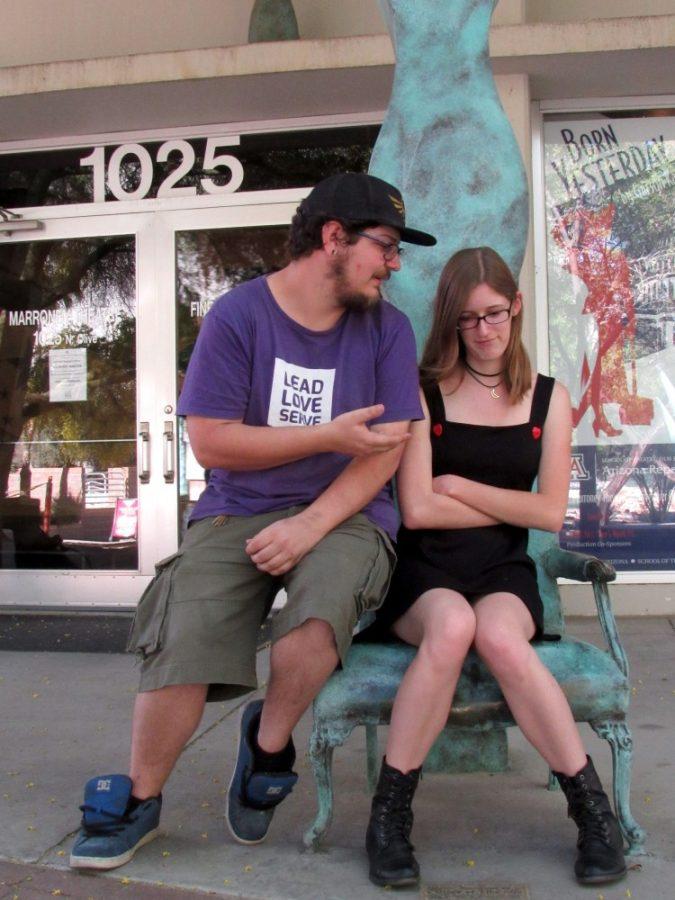UA students or employees who have concerns with emails, getting a project together or even an issue with a fellow Wildcat have a place to turn to on campus. Best of all, the advice looks at all viewpoints and comes with a guarantee of secrecy.
The Ombuds program is a campus resource for effective communication, collaboration and conflict resolution, for students, employees and community members who have university-related concerns.
Ombuds program director Caitlan Hendrickson said the program serves a wide spectrum of people and situations, but the one constant is the confidentiality.
“I don’t share anything that folks share with me with anyone else, I don’t even share the identities of those who have met with me, unless I have their request or permission to do so,” Hendrickson said. “The one exception is situations involving imminent risk of serious harm.”
Hendrickson said to maintain confidentiality to the maximum extent permitted by law, the Ombuds program is not an office of notice to UA in terms of legal or formal complaints, and is not an office of record, so she shreds notes after a case is closed.
RELATED: The UA writes the handbook on microaggression
“We don’t engage in any formal processes, but we do help connect folks to them if they are interested in that,” Hendrickson said.
The program, comprised of Hendrickson and a few trained volunteers, works with people one-on-one or in groups, one time only or for an extended period of sessions, for coaching, consulting, skill building or mediating. Hendrickson said a key tenet is impartiality.
“We can help folks really look at the situation from various perspectives, analyze it, help them come up with different options to work with the situation in a constructive way,” Hendrickson said. “When we’re in the middle of something that feels stressful or tense, it can be difficult to step outside of ourselves and see it from different angles.”
Carolyn Lukensmeyer, executive director of the National Institute for Civil Discourse, said impartiality is what makes the Ombuds program effective.
“The support of someone who is neutral can ensure that the conversation feels safe and able to be influenced by all parties,” Lukensmeyer said. “In a conflict situation that is essential.”
College campuses present a huge potential for conflict, Lukensmeyer said, making them the perfect location for a program like Ombuds, which is common on campuses.
“College campuses, like any large organizations, are very complex and people bump up against each other in many different settings that could definitely call for the role of an ombudsman,” Lukensmeyer said.
Since Hendrickson became director of the program last year, she has focused on publicizing the program. In 2015-16, her first year, the program served just over 630 individuals, not counting multiple sessions. That was an increase of 156 percent from the previous year.
“I’ve been noticing there’s a variety of different ideas on campus about what the Ombuds program is, and who we serve,” Hendrickson said. “It’s an ongoing process of getting the word out.”
Hendrickson also noticed trends from the data about the general topics of concerns. She said in 2015-16, the number one concern was evaluative relationships, like those between professors and students or supervisors and employees. The second top concern was peer and colleague relationships.
RELATED: UA ramps up efforts to address diversity concerns with Diversity Task Force
Within those categories, the top concerns were communication and respect.
“That can be the amount of communication, the type of communication, the style of communication, just any kind of concerns that could come up around communication,” Hendrickson said.
According to Hendrickson, once the data is broken down to just students, the top two concerns change to evaluative relationships and services and administrative issues, like quality of services and administrative decisions.
“We track the trends in terms of types of issues and situations people are encountering so we can bring those trends to the attention of the administration without disclosing people’s identities,” Hendrickson said.
Andrew Comrie, senior vice president for academic affairs and provost, said besides that function, the program also communicates a vital message.
“I believe it sends an important signal that we have a neutral office that is outside the regular channels that can provide people with assistance in unresolved disputes,” Comrie said.
Mary Beth Tucker, assistant vice president of the office of institutional equity, said it’s the flexibility in services the Ombuds program provides that makes a difference.
“From my perspective, I like the opportunity to offer individuals on campus as many resources and options as possible to address their needs,” Tucker said. “For some people, they want a more official approach, some want a confidential approach.”
According to Tucker, the education and services related to conflict resolution are also key.
“It offers confidential support and services, which is really important to people who are still trying to assess a problem and figure out what they want to do,” Tucker said. “Caitlan can help people respond to others and help them practice and think about how they might communicate with someone they’re having troubling with.”
Hendrickson, who said she took this position because she’s always been a peacemaker, wants to continue working toward a campus with stronger and more positive conflict resolution.
“Conflict is a natural occurrence in human interaction and existence, so being able to harness the constructive and positive aspects effectively rather than having it become destructive is important,” Hendrickson said.








